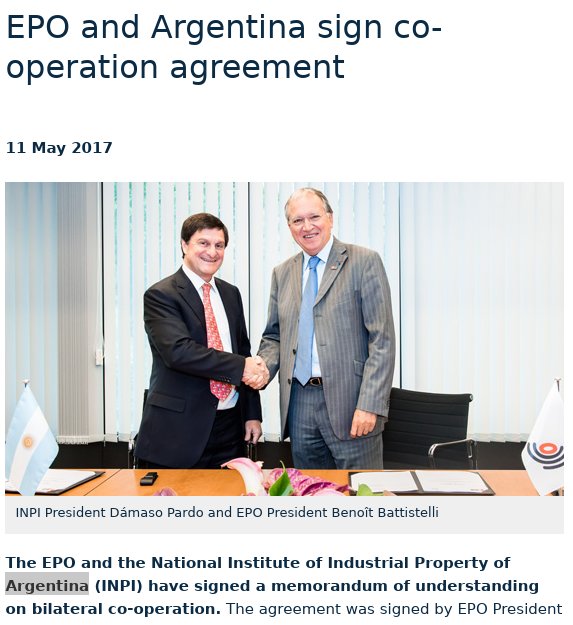


Due to a clerical error, the Comment below by Prof. dr. C.A.M. Mulder, was not previously published. We take this opportunity to do so now.
"If I were the appellant, I would file an objection under Article 24(1) EPC which says: “Members of the Boards of Appeal or of the Enlarged Board of Appeal 'may not take part in a case in which they have any personal interest' [the words in single quotes wish to be emphasized by the author], or if they have previously been involved as representatives of one of the parties, or if they participated in the decision under appeal.”
The reason is that in relation to referral question 3 in G 2/19, the Enlarged Board may have a ‘personal interest’ in the outcome of the proceedings, because they had to move from the Isar Building to the premises in Haar.
Of course, filing an objection for partiality in relation to the Munich or Haar location creates a perfect example of a ‘Epimenides’ paradox.
From the meeting documents approved by the Administrative Council of the European Patent Organisation, the European Patent Office rented the Haar building for 15 years for approx. 45.000.000 euro. Let’s hope the EBoA is sufficiently independent and will not enter into ‘evasive manoeuvres’ preventing them from answering the questions, e.g. by declaring the whole referral as inadmissible."
epo.org link) from the EPO (mostly a photo op). The National Institute of Industrial Property of Argentina (INPI), the same acronym as the French one but with no relation to it, had just met the second Frenchman in two years in order to sign some papers and produce another photo op like Battistelli's repertoire. It is getting hard to tell the difference between Battistelli and his choice of succession (chosen successor/successor of choice), as the same corporate trajectory is taken without exception. Moreover, Campinos allowed Battistelli to come back -- a slap across the face to EPO staff.
The Offices will also focus on a number of activities aimed at strengthening capacities in search and examination in emerging technology fields such as the Internet of Things (IoT) and Industry 4.0, as well as capitalising on EPO work products, tools and standards.
"When they say "Internet of Things (IoT)" and "Industry 4.0" (sometimes "4IR", another mindless buzzword) they typically mean software patents, disguised using a plethora of media hype waves like "hey hi" (AI)."It's sad to see that a change of President changed nothing at all at the EPO; not even the organisational chart changed much. We wrote about it a few days ago. It's a friend-brings-a-friend scheme. Christine Lagarde, a friend/ally of Battistelli, seems to have just gotten a new job this way, not because of her record (appalling; just ask the Greek) but because of connections.
We remain worried that the EPO grants software patents without any qualm or restraint. This will certainly cushion patent trolls' growth in Europe (it's already happening) and harm technical companies across the continent. Here is what the CCIA wrote about the BoA's equivalent, the Patent Trial and Appeal Board (PTAB), being gentler on dubious patents even when inter partes reviews (IPRs) are filed with merit. "Between the substantive changes and Director Iancu’s rhetoric," the CCIA said (not to mention that those are not the same judges after Iancu intervened), "PTAB judges may have seen the writing on the wall and begun to shift their decision-making processes towards allowing questionable patents to survive."
"WIPO derives its power (not just authority) from the cult of patent maximalism -- the misguided idea that everything which ever existed must be patented, no matter how trivial or even a product of nature (the subject of our next post)."What happens under Iancu in the US resembles a lot what happened under Battistelli. It is a judge-bashing takeover or a coup. Judges are afraid; sometimes they're ignored.
Over at Watchtroll Raymond Millien says that "More Than 60% of Issued U.S. Patents are Software Related" and Mark Marrello continues their lobbying for software patents in "Urge Congress to Keep the Established and Efficiently Working Sections 100 and 112 of the U.S. Patent Act" (they just want 35 U.S.C. ۤ 101 watered down or 'eliminated' because software patents have near-zero validity chances in courts these days).
A quick glance at the number of US patents granted (and more so European Patents granted) over the past decade quickly reveals that growth in the number of patents (not innovation surrogate) was faked or 'manufactured' by lowering the bar. WIPO won't restore sanity or bring these things under control; WIPO derives its power (not just authority) from the cult of patent maximalism -- the misguided idea that everything which ever existed must be patented, no matter how trivial or even a product of nature (the subject of our next post). ⬆